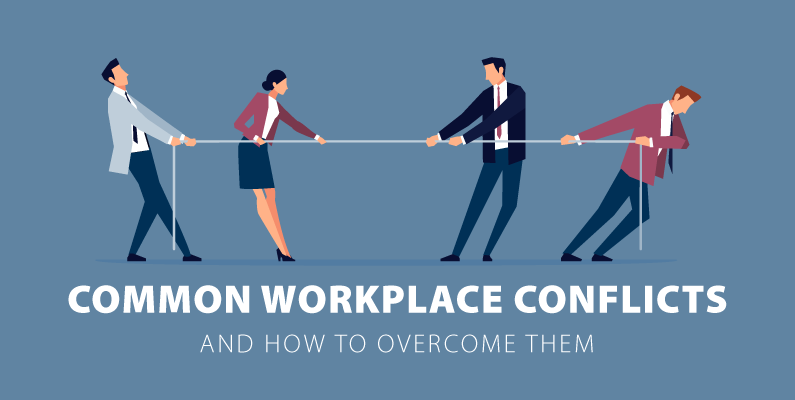
Startups: Resolve Conflicts Constructively for Sustainable Success
Startups: Resolve Conflicts Constructively for Sustainable Success https://theraise.eu/wp-content/uploads/2023/10/Common-Workplace-Conflicts-header-CSP.png 795 400 RAISE fosters startup growth and scale-up within and across Europe RAISE fosters startup growth and scale-up within and across Europe https://theraise.eu/wp-content/uploads/2023/10/Common-Workplace-Conflicts-header-CSP.pngIn the dynamic and often turbulent world of startups, conflict is almost inevitable. The pressures of launching a new venture, coupled with the diversity of skills and personalities within a startup team, can lead to disagreements and tensions. While conflict may seem like an obstacle to progress, it can also be a catalyst for innovation and growth if managed constructively. In this article, we explore the importance of resolving conflicts in startups and offer insights on how to do so effectively.
Conflict in startups is a double-edged sword. On one hand, it can stimulate critical thinking and spark creativity. Differing opinions and perspectives can lead to innovative solutions and uncover previously unnoticed opportunities. On the other hand, unresolved or poorly managed conflicts can escalate, erode team morale, and ultimately jeopardise the success of the startup. Hence, it is crucial to approach conflicts with the right mindset and strategies.
- Open Communication: The foundation for resolving conflicts constructively in startups lies in open and transparent communication. Encourage team members to voice their concerns, opinions, and ideas without fear of reprisal. Create a culture where everyone feels heard and respected, even when they disagree.
- Understand the Source: Conflict often arises from miscommunication, differing goals, or a lack of clarity. It’s essential to identify the root cause of the conflict. Sometimes, what may seem like a personal dispute might actually be rooted in professional issues or misunderstandings.
- Mediation and Collaboration: Utilize mediation and collaborative problem-solving techniques. A neutral third party, such as a mentor or an HR professional, can help facilitate constructive discussions and guide the team towards a mutually beneficial solution.
- Set Clear Expectations: Prevent conflicts by setting clear expectations and defining roles and responsibilities within the startup. Ambiguity can breed disputes, so ensure that every team member understands their duties and the team’s goals.
- Learn from Conflicts: Conflicts, when resolved constructively, provide valuable learning opportunities. After a dispute has been resolved, it’s crucial to reflect on what led to the conflict and how it was resolved. Use this insight to improve processes, communication, and team dynamics.
- Cultivate a Growth Mindset: Encourage a growth mindset among team members. Emphasize that setbacks and conflicts are part of the journey and can lead to personal and professional development. This mindset shift can help team members embrace challenges and conflicts as opportunities for growth.
- Foster a Supportive Environment: Build a culture where support and empathy are paramount. Team members should feel comfortable reaching out for help and understanding that they are part of a collaborative effort where the success of the startup is the ultimate goal.
Conflicts within startups are not something to fear but rather an integral part of the entrepreneurial journey. When managed constructively, conflicts can lead to innovation and growth. By promoting open communication, understanding the source of conflicts, and utilising mediation and collaboration, startups can navigate challenges successfully. Moreover, embracing a growth mindset and fostering a supportive environment can turn conflicts into stepping stones towards sustainable success. Remember, it’s not the absence of conflict that defines a successful startup, but how these conflicts are resolved that truly matters.
Photo via CSP Global
- Posted In:
- Startup News




